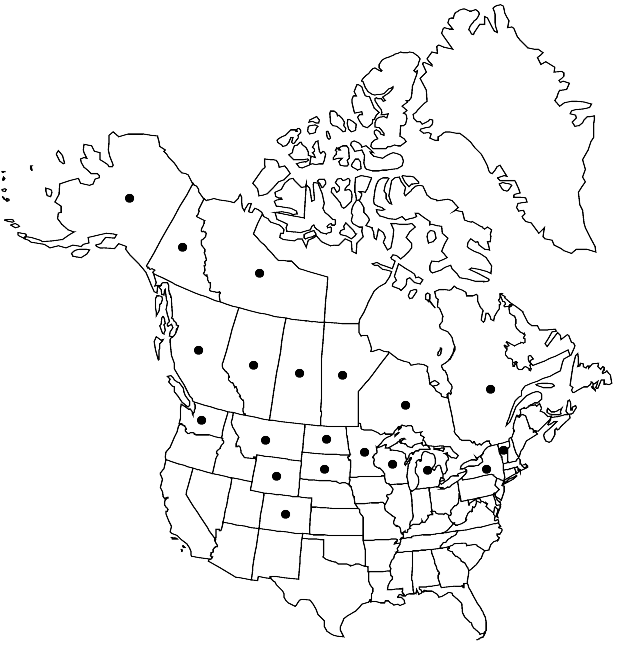Boechera grahamii
Harvard Pap. Bot. 12: 241. 2007.
Biennials or perennials; short-lived; apomictic; caudex present or absent. Stems usually 1 per caudex branch, arising from center of rosette near ground surface, (1.2–)2–12 dm, glabrous or pubescent proximally, trichomes simple and sessile or subsessile, 2 or 3(–6)-rayed, to 1 mm, glabrous distally. Basal leaves: blade oblanceolate, 1.5–10(–20) mm wide, margins entire or dentate, ciliate proximally, trichomes (simple), to 1 mm, surfaces sparsely to densely pubescent, trichomes sessile or subsessile, 2–4(–7)-rayed, 0.2–0.6 mm. Cauline leaves: (10–)13–52, often concealing stem proximally; blade auricles 1–5 mm, surfaces of distalmost leaves glabrous. Racemes 16–88-flowered, usually unbranched. Fruiting pedicels divaricate-ascending to descending, usually gently curved downward, rarely straight, 5–22(–30) mm, glabrous. Flowers divaricate at anthesis; sepals glabrous or pubescent; petals usually white, rarely lavender, 5.5–8 × 1–2 mm, glabrous; pollen spheroid. Fruits divaricate-ascending to pendent, not appressed to rachis, not secund, straight or slightly curved, edges parallel, 3.5–9 cm × 1–1.8 mm; valves glabrous; ovules 84–146 per ovary; style 0.05–0.5 mm. Seeds uniseriate to sub-biseriate, 1–1.8 × 0.8–1.2 mm; wing continuous, 0.1–0.25 mm wide. 2n = 21.
Phenology: Flowering May–Aug.
Habitat: Rocky slopes and sandy soil in prairies and open forests
Elevation: 100-3200 m
Distribution

Alta., B.C., Man., N.W.T., Ont., Que., Sask., Yukon, Alaska, Colo., Mich., Minn., Mont., N.Y., N.Dak., S.Dak., Vt., Wash., Wis., Wyo.
Discussion
Morphological evidence suggests that Boechera grahamii is an apomictic species that arose through hybridization between B. collinsii and B. stricta. Previous authors have assigned these specimens to Arabis (Boechera) divaricarpa (see M. D. Windham and I. A. Al-Shehbaz 2007b for detailed comparison); if these taxa are treated as conspecific, the name B. grahamii has priority.
Selected References
None.